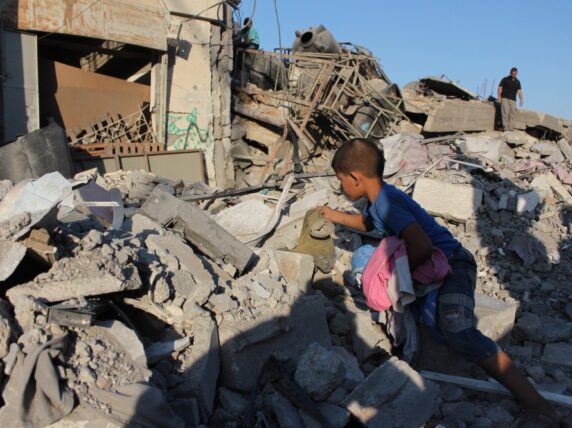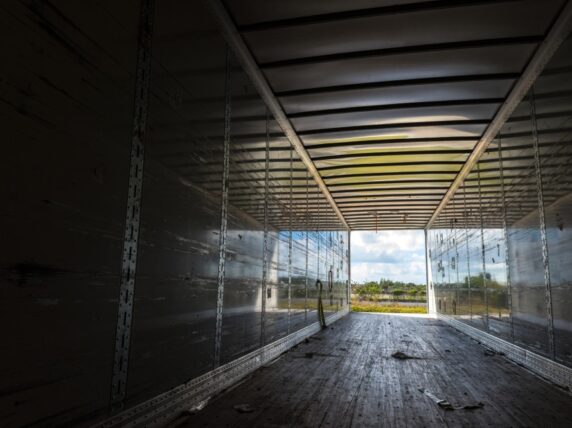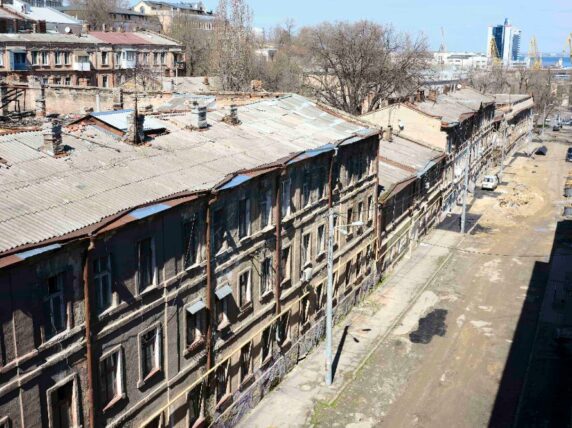The new UK International Development Strategy doesn’t join the dots on conflict
On conflict and fragility, the UK government’s new International Development Strategy, published on Monday, says many of the right things.
It talks of tackling the root causes of instability, conflict and human suffering, and of helping countries escape the cycles of violence that underpin protracted crises.
Significantly, the strategy draws out the links between conflict and other threats such as organised crime, corruption and political polarisation through malign actors, and points to the need to tackle these through more than just aid programming. That is clearly in the UK’s security interests – which is perhaps why it features so prominently – but there is little doubt that such threats hurt communities living through conflict even more.
There’s welcome recognition too of the need to tackle violence against women and girls, from the household level to whole societies. This is important in itself, but also crucial to preventing and resolving wider conflict. One study showed that men who were beaten as children were three times as likely to participate in political violence; those who saw their mothers beaten, six times; and those who experienced both, ten times as likely as their peers. More gender-equal societies are also far less hostile to minorities, and to other nations.
On how the Foreign Commonwealth and Development Office (FCDO) will work, the new strategy envisages more responsive, flexible and “patient” aid, with greater delegation to Embassies and High Commissions.
That should be good for conflict work. Conflict dynamics in fragile places are complicated, and can change quickly. Adaptable and flexible programming that accepts higher levels of risk, and is locally-driven, makes the most impact – I’ve seen that clearly as a former UK diplomat in fragile and conflict countries. And though the paper falls short of recent commitments by USAID to put local partners first, it acknowledges the need for self-determination and sovereignty by local partners who know their contexts best.
Yet despite all this, the strategy misses a big opportunity to join the dots.
Extreme poverty in the world’s more stable places has decreased by hundreds of millions in recent decades. But in fragile and conflict-affected states, the numbers of people in absolute poverty have kept increasing. The majority of the world’s poorest people now live in such places, and that proportion will grow to two-thirds by 2030. As International Rescue Committee have pointed out, just 20 countries – all in conflict – account for almost 90% of global humanitarian need and four-fifths of refugees.
Subscribe to our newsletter
Our weekly email newsletter, Network News, is an indispensable weekly digest of the latest updates on funding, jobs, resources, news and learning opportunities in the international development sector.
Get Network NewsSo conflict and fragility are now the biggest obstacles to reaching the Sustainable Development Goals. As global conflict trends worsen further, the strategy’s goals on health, education, climate and nature will only get harder to reach, and inequality between the stable and the fragile world will keep growing. Violence is the biggest single thing holding the world’s poorest people back from improving their lives. Dealing with the root causes of fragility should have been a focus across this new strategy – not just a separate section of it.
That’s also true for investment, a big theme of this new strategy. Sustainable, green investment in fragile and conflict-affected states is urgently needed. Yet examples abound of how investments, when insensitive to conflict dynamics, have ended up fuelling further violence. The FCDO will need to bring its deep understanding of political and conflict dynamics into the new British Investment Partnerships to get that right – and put conflict sensitivity front and centre in framing them.
No strategy succeeds without sufficient resources, but the strategy says nothing new on returning to 0.7. With food insecurity and conflict brewing around the world, the UK is one of the few donors to have cut aid in the face of a global emergency. It has found money in the government’s reserves to boost defence spending during the Ukraine crisis, but not for aid: extra aid spending for Ukraine is coming at the cost of crises elsewhere. That has to change.
The UK was once a leader in committing to spend more of its aid to fragile and conflict contexts. The government recognised then – as it must now – that unless aid confronts our world’s fragility crisis, the returns on development investments will be hard to find.
More recently, this government’s Integrated Review stressed that the UK, with its global reach andcross-government working, could play a leading role globally on addressing conflict.
This new strategy feels like a step back from those ambitions, rather than towards them. But for those committed to preventing and resolving conflict, there is plenty still to fight for.




